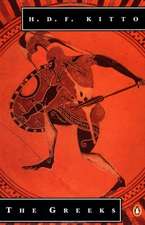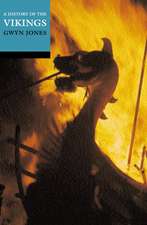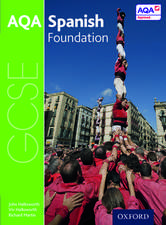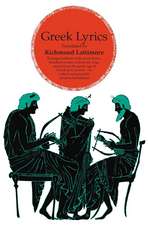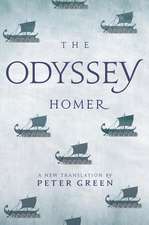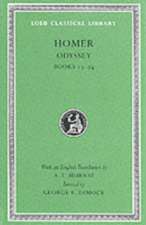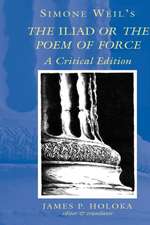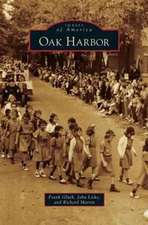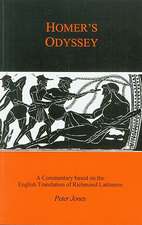The Iliad of Homer
Autor Homeren Limba Engleză Paperback
| Toate formatele și edițiile | Preț | Express |
|---|---|---|
| Paperback (10) | 77.36 lei 3-5 săpt. | |
| – | 77.36 lei 3-5 săpt. | |
| University of Chicago Press – 15 noi 2011 | 117.34 lei 3-5 săpt. | +33.11 lei 6-12 zile |
| CREATESPACE – | 135.73 lei 3-5 săpt. | |
| CREATESPACE – | 177.68 lei 3-5 săpt. | |
| – | 194.95 lei 3-5 săpt. | |
| CREATESPACE – | 210.79 lei 3-5 săpt. | |
| – | 258.34 lei 3-5 săpt. | |
| 1st World Library – | 136.29 lei 6-8 săpt. | |
| Blurb – 2 oct 2019 | 137.43 lei 6-8 săpt. | |
| Theophania Publishing – | 180.79 lei 6-8 săpt. | |
| Hardback (1) | 242.41 lei 6-8 săpt. | |
| 1st World Library – | 242.41 lei 6-8 săpt. |
Preț: 77.36 lei
Nou
Puncte Express: 116
Preț estimativ în valută:
14.80€ • 15.83$ • 12.34£
14.80€ • 15.83$ • 12.34£
Carte disponibilă
Livrare economică 28 martie-11 aprilie
Preluare comenzi: 021 569.72.76
Specificații
ISBN-13: 9781537085432
ISBN-10: 1537085433
Pagini: 228
Dimensiuni: 178 x 254 x 12 mm
Greutate: 0.4 kg
ISBN-10: 1537085433
Pagini: 228
Dimensiuni: 178 x 254 x 12 mm
Greutate: 0.4 kg
Notă biografică
Homer is the name ascribed by the Ancient Greeks to the semi-legendary author of the two epic poems, the Iliad and the Odyssey, the central works of Greek literature. Many accounts of Homer's life circulated in classical antiquity, the most widespread being that he was a blind bard from Ionia, a region of central coastal Anatolia in present-day Turkey. The importance of Homer to the ancient Greeks is described in Plato's Republic, where he is referred to as the protos didaskalos, "first teacher", of tragedy, the hegemon paideias, "leader of learning" and the one who ten Hellada pepaideuken, "has taught Greece". Homer's works, which are about fifty percent speeches, provided models in persuasive speaking and writing that were emulated throughout the ancient and medieval Greek worlds. Fragments of Homer account for nearly half of all identifiable Greek literary papyrus finds in Egypt.
Cuprins
Introduction
Translator’s note
Maps
Book One
Book Two
Book Three
Book Four
Book Five
Book Six
Book Seven
Book Eight
Book Nine
Book Ten
Book Eleven
Book Twelve
Book Thirteen
Book Fourteen
Book Fifteen
Book Sixteen
Book Seventeen
Book Eighteen
Book Nineteen
Book Twenty
Book Twenty-One
Book Twenty-Two
Book Twenty-Three
Book Twenty-Four
Notes
Bibliography
Glossary of Names
Translator’s note
Maps
Book One
Book Two
Book Three
Book Four
Book Five
Book Six
Book Seven
Book Eight
Book Nine
Book Ten
Book Eleven
Book Twelve
Book Thirteen
Book Fourteen
Book Fifteen
Book Sixteen
Book Seventeen
Book Eighteen
Book Nineteen
Book Twenty
Book Twenty-One
Book Twenty-Two
Book Twenty-Three
Book Twenty-Four
Notes
Bibliography
Glossary of Names
Recenzii
"Both lucid and learned, Lattimore writes with a certain grace, capturing the combination of nobility and speed which over 100 years ago Matthew Arnold famously heard in Homer’s work. . . . Read Richmond Lattimore's translation for the epic scale and narrative of Homer's poem."
"Martin's introduction surpasses all rivals. . . . Lattimore's Iliad is best for those who want to feel the epic from the loins up, its rush, its reprieves, and its overwhelming rage."
"Martin's introduction surpasses all rivals. . . . Lattimore's Iliad is best for those who want to feel the epic from the loins up, its rush, its reprieves, and its overwhelming rage."
“I had an invaluable and inspiring high school teacher, Robert Cooley, who introduced me to both Lattimore's The Iliad and The Odyssey during my senior year. It was my first experience with the power of drama and poetry combined. Little did I know that I would spend the rest of my life (especially professionally) searching for experiences that would be as satisfying. The fact that I fell in love for the first time with the guy sitting next to me didn’t hurt my journey through those books either.”


